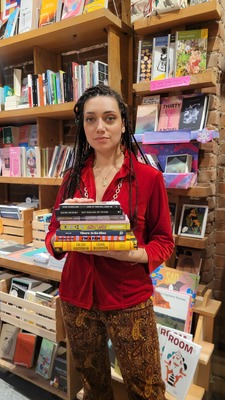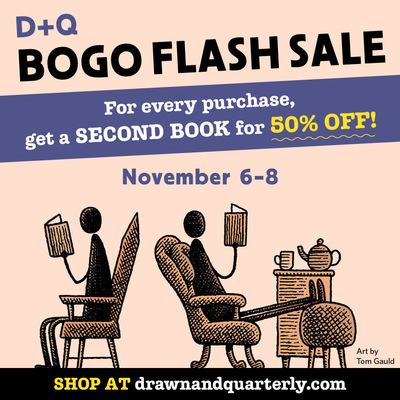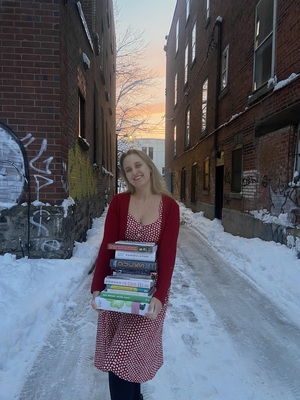"Why is the world this way? Can I have a say?" Morgan Parker in conversation with Monique Polak
December 11, 2019
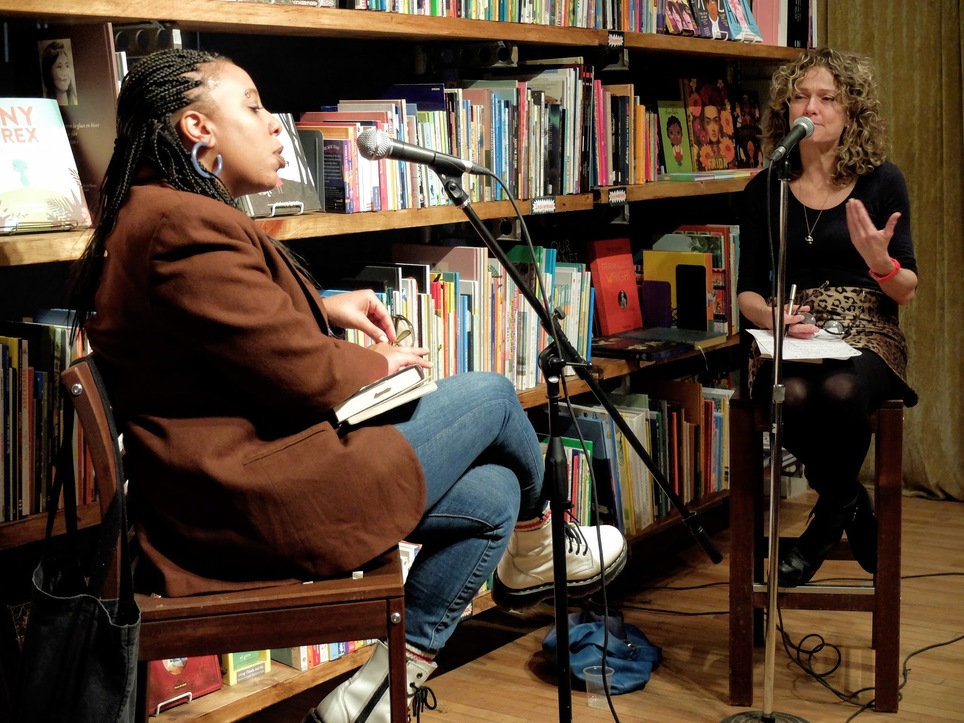
We are so grateful Morgan Parker traveled through the snow to come discuss with us her latest book Who put this song on? She jokingly quoted Jay-Z: “You could have been anywhere tonight, but you’re all here with me!” Warm, lively and intimate, the event was a real treat for people that came!
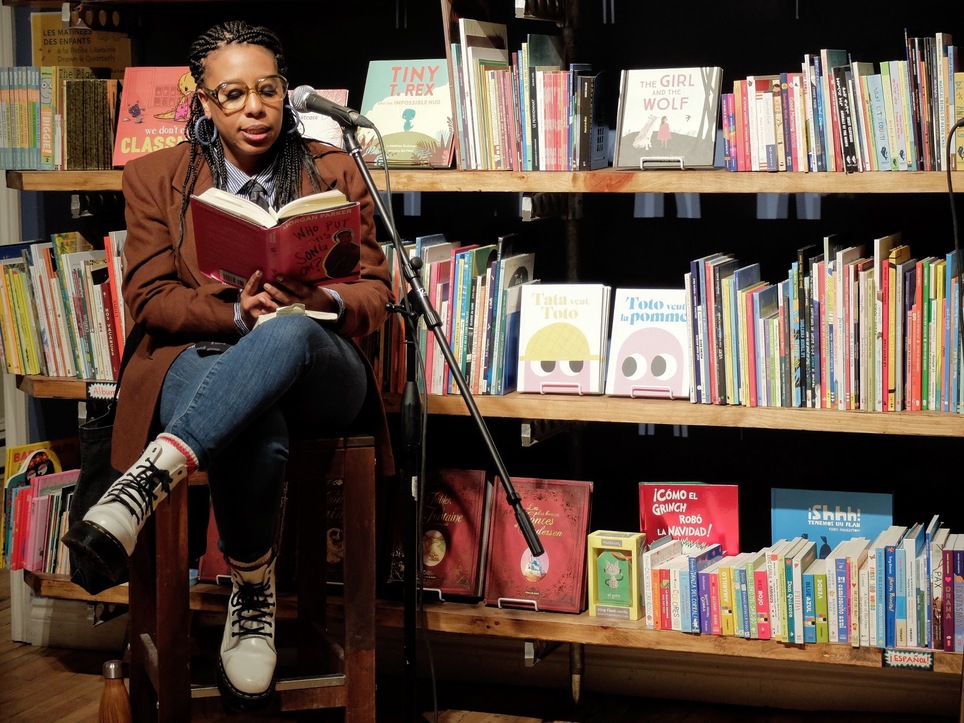
Morgan Parker has made a name for herself writing poetry (There Are More Beautiful Things Than Beyonce, Magical Negro) but in the book, Morgan the character hates poetry. She said she didn’t read poetry until she was around 20 mostly because it was boring! “Who cares???” she says, and about the school system: “You almost didn’t have me! Unless for one teacher that cared. Most teachers were bored. It’s a problem of accessibility, of education. The idea that if it’s so far away from me, I won’t be concerned, I will be puzzled. If poetry is taught as a challenge, it will make you feel dumb, but depending on the teacher, it can be just the challenge you need, that will change how you feel and read. New poetry is exciting!”
Continuying on the subject of poetry, Polak asked her what brought her from poetry to prose. Parker replied that she feels the best novelists are poets, or if not, they read a lot of poetry. Many important aspects of writing, one can learn from poetry: Economy of words, rhythm, sounds, how the words are laid on the page… “A good novel is all of the good stuff! When it’s forgotten, it drags down the story. A poet’s mind is an active mind.” In writing her novel, she focused on her voice, flow, rhythm and what she looks at in the world. Poetry is about exploration. “If you already know where it’s ending, why do you even write this poem?” She told us she wrote many drafts for this book, between 10 to 20 versions in total, and that she was really annoyed and angry at her agent, for not telling her about what writing a novel implies in that sense. She admitted that every draft was always better than the previous one, though. She had to find her voice through fiction, and had to have some growing pains and grow through that process.
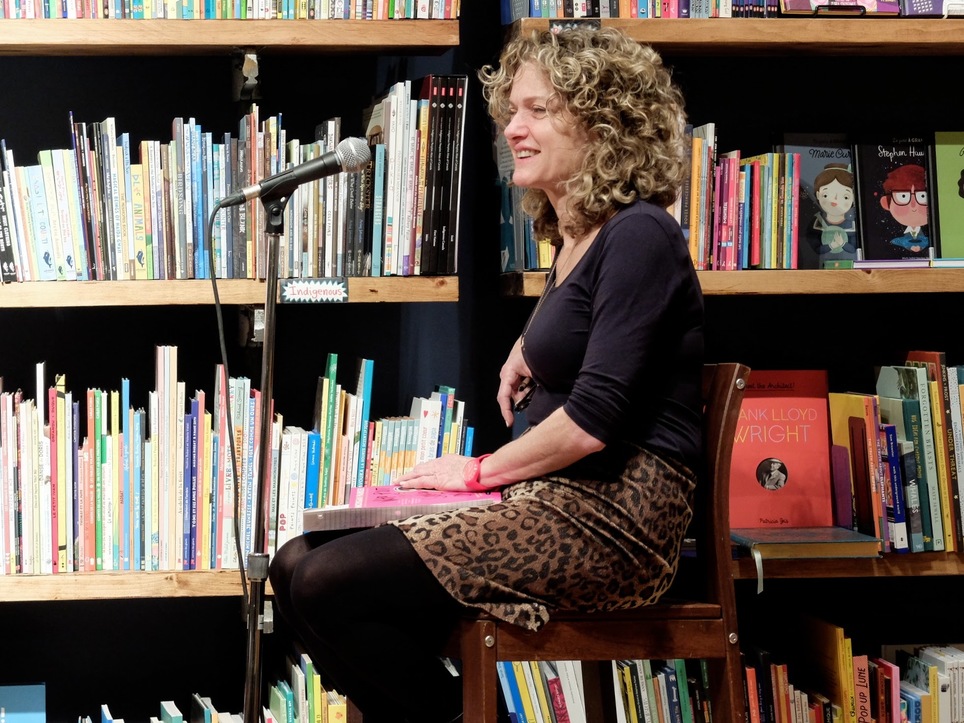
When asked “Why write YA specifically?” she says she wanted to reach these people. She had a terrible time writing this book but she finished it for her past self, and for the teens that needed it the most. She didn’t read as a young adult, she didn’t read YA literature until she started writing the book. After noticing what she liked and didn’t like, she felt that her responsibility as a bigger sister was to be real with her readers. She understands narrative and stories, but she said she has never had a happy ending in her life, so why would she have one in her book? She wants it to be real. Polak asked her about YA’s current tendency to include activism as a plot point, why she feels it’s so prominent, and she burst “because adults aren’t doing anything! They’re still thinking about it!” She says teens have energy to do it, and adults are jaded, they have lost the vision. Same as with politics, “that’s just how it goes, go with the flow…It’s so oppressive that you just want to explode!” When she was in school, she always tried to negotiate. “I just wanted to research, see what’s there. I had a mistrust of what’s being told and to conform to. Why is the world this way? Can I have a say?” To conclude, she adds that “it matters, what we put in the world, what is seen, it makes a huge difference. Writing for YA feels even more like a responsibility; being oriented in the world in a particular way, not into a fantasy world. Why don’t we set our youth up for what is really out there?”
The subject drifted onto mental health, and its place in her life and creative processes. She said not everyone is the same but many artists share the same strategies as survival mechanisms. She doesn’t want to conflate the two together too much, as it feels risky. Mental health doesn’t mean being an artist. In that sense, she said to everyone in the audience “when I hear ‘I don’t want to take pills because I won’t be creative,’ don’t do that!!!” At the heart of the story there is a feeling of shame tangled in layers of differences. Parker says a lot of people around her were dealing with the same issues but didn’t talk about it; mental health was hidden. She even wrote an essay about it at the end of her high school years, and people were truly surprised to hear about her depression. People saw her as happy, fun, cheerful, and that made her sad. She feels it’s important to show all the different ways depression can appear: “A lot is inwards, especially for people that are othered already. They have almost an ancestral skills of overfunctioning. I’m fine, I’m holding together.”
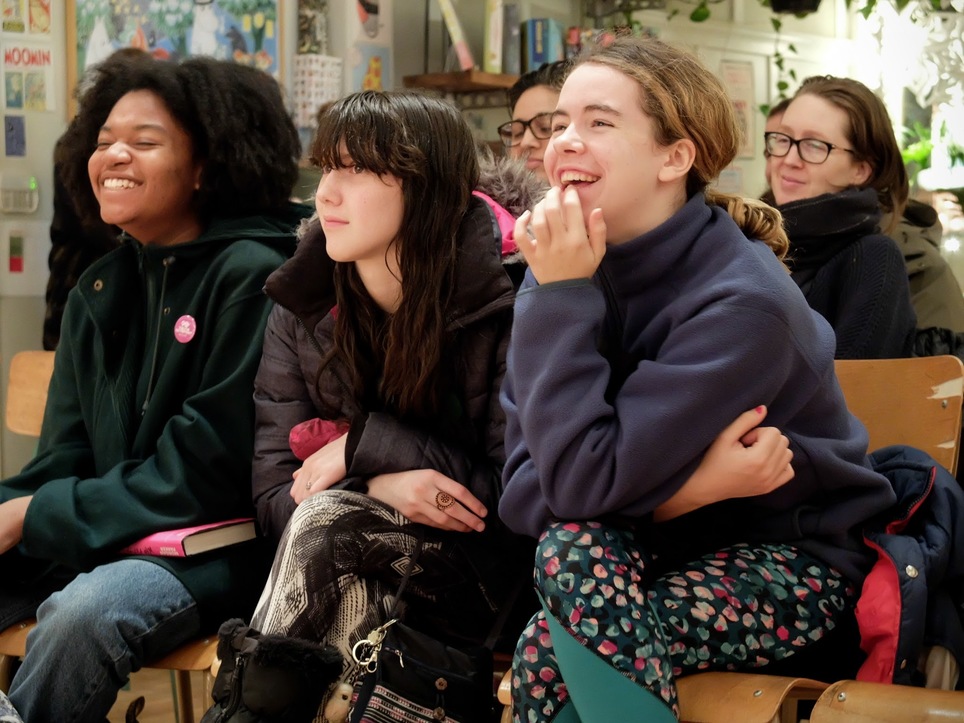
Finally, as an advice for writers, she says: “Read everything, read everything and then read it again! Go outside, live your life, have a life in order to have something to write about! Always write. Writing takes many forms, going to a museum, watching a movie, eavesdropping, reading… that’s part of writing too, always have a notebook!”
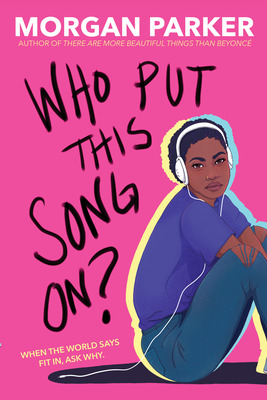
Who Put This Song On?
Morgan Parker
"Unflinchingly irreverent, laugh-out-loud funny, and heartbreakingly honest." —Elizabeth Acevedo, National Book Award winner and New York Times bestselling author of The Poet XIn the...
More Info